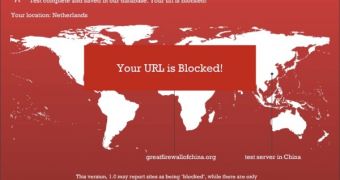Earlier this year, the Australian government proposed the introduction of a new system of limiting children's access to sites with inappropriate content on the Web, a mandatory filter that would basically block these sites. Critics, including civil rights movements, consumers, Internet engineers and providers, as well as a large part of the political class, say that this is all-out censorship, no different than China's Great FireWall.
On the other hand, advocates support the idea by saying that the influence of adult content on the minds of young children is starting to become a national problem. The plan, they say, will make Australia the safest country in the democratic world, in issues related to Internet navigation – the highest possible level of legal censorship, critics add.
Among communist nations, ruling parties imposed severe limitations to Internet usage. In Egypt and Iran, for example, bloggers that criticized the establishment were jailed for as much as 10 years for a single post, whereas in Korea, there is no access to the Web to speak of. In China, a nation-wide filter blocks thousands of outside sites, including those regarding Tibet and Taiwan. In the civilized world, the UK and Canada imposed filters, but they are optional, and people can reject using them.
"The filter may not be able to in fact protect children from the core elements of the Internet that they are actually experiencing danger in. The filter should be one small part of an overall comprehensive program to educate children and families about using the Internet," argues Holly Doel-Mackaway, an adviser with the Save the Children Organization.
There are of course those who call opponents to this filter “net libertarians” or “immoral and decadent.” In truth, all people should be free to watch whatever they want on the Internet. Those who do not favor the filter say that the government needs to invest money in fighting those who abuse underage children, and then post their videos on-line. Restricting access for everyone, while letting the cause of the problem dwell, will only make things worse over the years.

 14 DAY TRIAL //
14 DAY TRIAL //